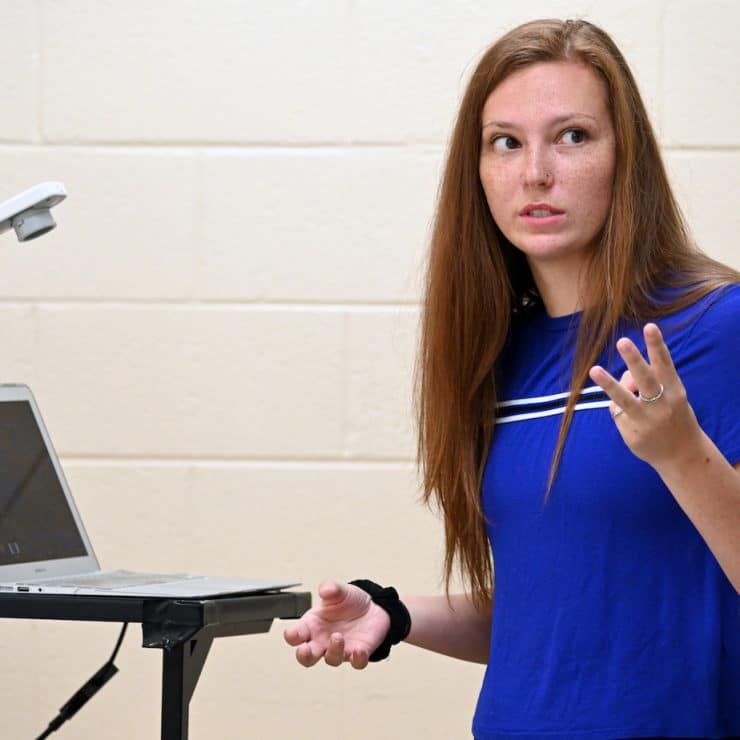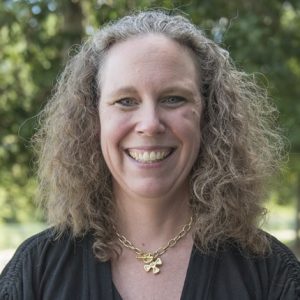
Educational Studies
The Educational Studies program at Methodist University prepares students to graduate with a bachelor’s degree in the field of education without a teaching license. Primarily, this program is suited for students who are interested in working in private education field, but are not ready to teach in a public setting.
Common Career Paths
Some of the top jobs for those with Educational Studies bachelor degrees include academic advisor, tutor, education program director, daycare provider, counselor, and so much more.
Common Salary Ranges for Graduates
As mentioned above, there’s a long list of career opportunities for those with Educational Studies degrees. But, the U.S. Bureau of Labor Statistics reports the average annual salary for the following positions (which may require additional education) in North Carolina in 2021:
- Educational, guidance, and career counselor/advisor: $52,870
- Tutor: $39,760
- Education and childcare administrator (preschool and daycare): $44,190
Average Tuition Cost
The average cost for an incoming residential freshman to attend MU is less than $18,000 – similar to the cost of attending one of the big-box public schools, but with the enhanced value of a highly-regarded private school with a 12:1 student-to-faculty ratio.
While tuition varies, depending on a student’s financial aid package, it’s important to know that the average financial award for an incoming residential freshman at MU is more than $34,000.
Financial Aid & Scholarships
More than 97% of MU students receive some form of financial aid, with the University offering more than $24 million annually to students for scholarships. If a student is active military, family of active military, or a veteran, they may also qualify for MU’s military education benefits.
Interested in Methodist University’s Educational Studies program?
If you have questions, reach out to Dr. Patricia Fecher using the contact info at the bottom of the page. If you’re ready to apply today, click the button below!
Frequently Asked Questions
The Educational Studies program at Methodist University prepares students to graduate with a bachelor’s degree in the field of education without a teaching license. Primarily, this program is suited for students who are interested in working in private education field, but are not ready to teach in a public setting.
Some of the top jobs for those with Educational Studies bachelor degrees include academic advisor, tutor, education program director, daycare provider, counselor, and so much more.
Major Requirements
Candidates graduate with a bachelor’s degree but without a teaching license. Upon graduation, candidates are encouraged to re-enroll in a residency licensure program to earn a teaching license. There are three pathways listed below for earning a B.S. in Educational Studies.
Educational Studies: Elementary, Middle Grades, Secondary, Special Education, and Art
21-23 credits
| EDU 1420 Field Experience I (1) | EDU 4070 Professional Orientation (2) |
| EDU 2400 Instructional Technology (2) | EDU 4190 Seminar in Positive Behavior Development (3) |
| EDU 2420 Field Experience II (1) | EDU Elective from chosen licensure content area (3-4) |
| EDU 2510 Foundations of Education (3) | EDU Elective from chosen licensure content area (3-4) |
| EDU 3300 Educational Psychology (3) |
Educational Studies: Physical Education & Health Education
25-27 credits
| EDU 2420 Field Experience II (1) | KIN 2200 Computer Applications in Physical Education and Health Education (3) |
| EDU 3300 Educational Psychology (3) | KIN 3060 Adapted Physical Education (3) |
| EDU 4070 Professional Orientation (2) | EDU Elective from chosen licensure content area (3-4) |
| EDU 4190 Seminar in Positive Behavior Development (3) or KIN 3300 Behavior Management in PE and Health Education (3) | EDU Elective from chosen licensure content area (3-4) |
| KIN 2050 Introduction to Physical Education and Health Education (4) |
Educational Studies: Music Education
26-29 credits
| EDU 2400 Instructional Technology (2) | EDU Elective from chosen licensure content area (3-4) |
| EDU 3300 Educational Psychology (3) | EDU Elective from chosen licensure content area (3-4) |
| EDU 4070 Professional Orientation (2) | MUS 2090 Elementary Music Methods (2) |
| EDU 4190 Seminar in Positive Behavior Development (3) | MUS 2190 Secondary Music Methods (2) |
| EDU Elective from chosen licensure content area (3-4) | SPE 2550 Educating Diverse Populations (3) |
Required Area Content Courses
Minimum of 24 credit hours
This course work will be identified based on the program (degree of study) from which the student is transferring. Courses will be selected from the original degree of study to align with the candidate’s desired teacher licensure area as defined by the NC Residency Licensure requirements. Relevant coursework will be selected in the content area in which a student will seek licensure through an alternative licensure program upon graduation. All area content courses are selected and approved for each student by the department chairperson and teacher education committee content area representative.
Required Elective Courses
Minimum of 24 credit hours
All elective courses are selected and approved for each student by the department chairperson and teacher education committee content area representative. Selected courses will best prepare students for continued studies in the field of education through an alternative licensure program.
Total: 69-77 credit hours
Contact
Patricia Fecher, Ed.D.

